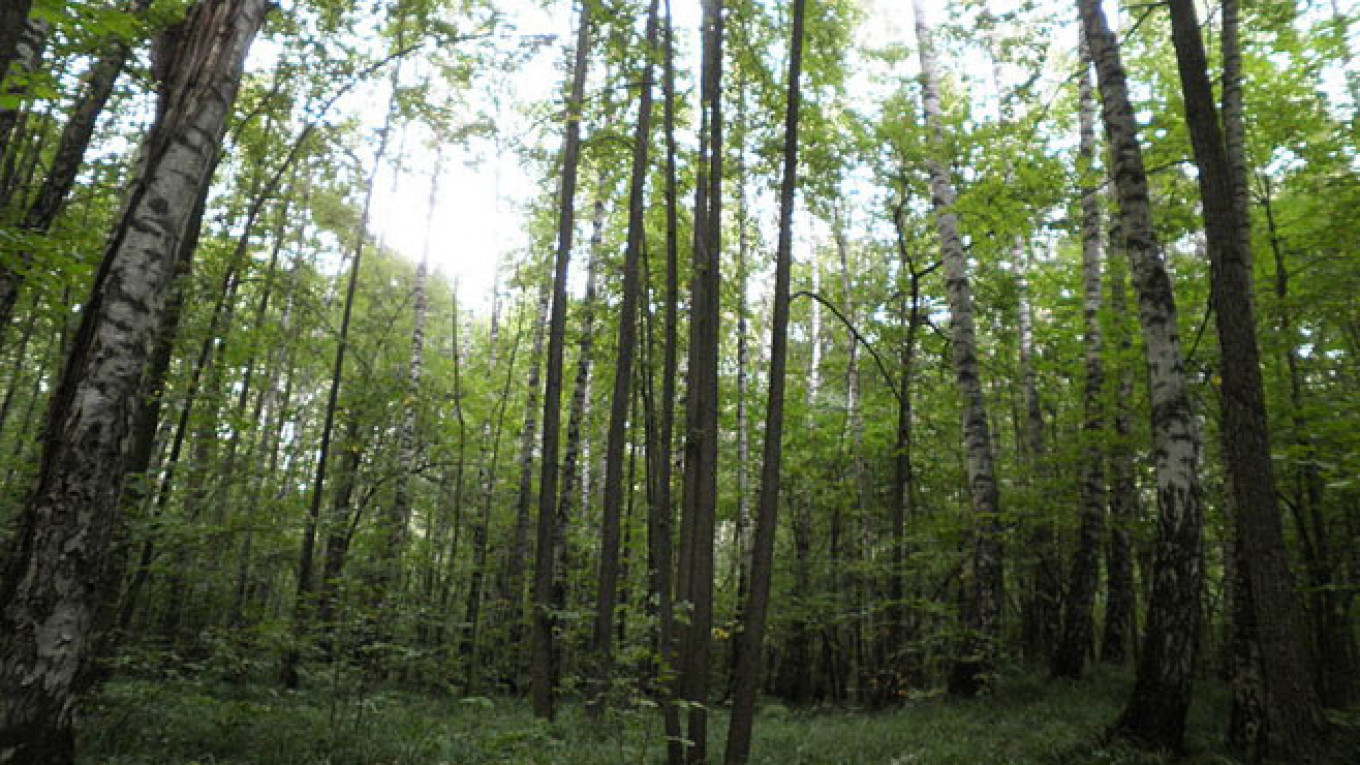Пуща: dense, virgin forest
Ah, August. August is the usually the scary month in Russia, the month when Bad Things Happen, the month of mourning, the month when political history is remade by tanks or peat fires. But this year, things have been so scary and so awful for so long, what difference could one month make?
Тьфу-тьфу-тьфу (sound of spitting over my shoulder three times to ward off bad luck).
Since scary things will happen no matter what, it is much better to spend the month out of the city heat, taking long walks in the woods.
The Russian language is rich on the subject of forests. The generic word for a forest is лес, but there are plenty of more specific terms. For example, you might choose the word пуща to describe a dense, virgin forest — if you know what a virgin forest looks like, that is. The most famous one is Беловежская пуща, where the U.S.S.R. was officially dissolved, usually simply transliterated as Belovezhskaya Pushcha.
A few trees are called роща (grove, copse), and the most famous kind in Russia is берёзовая роща (birch grove). A stand of pine trees is called бор (pine grove). In Moscow the most famous one is Серебряный Бор (literally, Silver Pine Grove).
An impenetrable part of the forest is called чаща (thicket), or чаща леса (deep in the forest): В бинокль я видел, как он выходил из чащи (Through my binoculars I saw him come out of the thicket).
And if it's a really old forest that has miraculously been untouched by civilization, it is дремучий лес (primeval or old-growth forest). This is also a description of someone's unknowable soul, as expressed in saying чужая душа — лес дремучий (literally, a person's soul is a deep forest).
Folks who know their forests might refer to either краснолесье (coniferous forest) or чернолесье (deciduous forest). For example: Я не хочу сказать, что краснолесье хуже, но красив и осиновый лес, как бы освещённый бледно-зелёным светом (I don't mean that coniferous forests are worse, but aspen forests are lovely, too, when they seem to be lit by pale green light). Чернолесье is black (чёрный) for a reason — all those leafy trees block the light: Когда заехали в чернолесье, потемнело в вагоне (When we went into the broad-leafed forest, the train car went dark.)
And folks who can tell one tree from another might be very specific, if old-fashioned, when they talk about the woods: дубрава (oak forest); осинник (aspen forest); вязник (elm forest); липняк (linden forest); ельник (fir forest); кедровник (cedar forest); сосняк (pine forest).
Not surprisingly, the forest figures in several common Russian expressions. Тёмный лес (a dark forest) is the English speaker's "It's Greek to me" — something incomprehensible.
And where there are forests, there are wolves. Волков бояться, в лес не ходить (literally, if you're scared of wolves, don't go into the woods). In other words, if you can't stand the heat, get out of the kitchen. Работа не волк, в лес не убежит (literally, work isn't a wolf that will run away in the woods). That is to say: Work isn't going anywhere (so have some fun). And finally: Как волка ни корми, он в лес смотрит (literally, no matter how much you feed a wolf, he keeps looking at the woods). Today this is usually abbreviated to смотреть в лес — to yearn for something better.
Like a nice, dark, cool forest on a hot day.
Michele A. Berdy, a Moscow-based translator and interpreter, is author of "The Russian Word's Worth" (Glas), a collection of her columns.
A Message from The Moscow Times:
Dear readers,
We are facing unprecedented challenges. Russia's Prosecutor General's Office has designated The Moscow Times as an "undesirable" organization, criminalizing our work and putting our staff at risk of prosecution. This follows our earlier unjust labeling as a "foreign agent."
These actions are direct attempts to silence independent journalism in Russia. The authorities claim our work "discredits the decisions of the Russian leadership." We see things differently: we strive to provide accurate, unbiased reporting on Russia.
We, the journalists of The Moscow Times, refuse to be silenced. But to continue our work, we need your help.
Your support, no matter how small, makes a world of difference. If you can, please support us monthly starting from just $2. It's quick to set up, and every contribution makes a significant impact.
By supporting The Moscow Times, you're defending open, independent journalism in the face of repression. Thank you for standing with us.
Remind me later.








